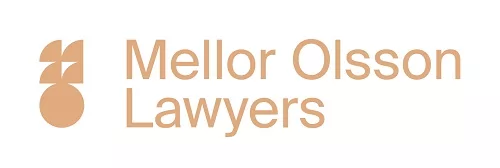Society's growing awareness of domestic and family violence has changed how we view relationships. While some relationships may appear loving and supportive on the surface, they can, in reality, be toxic and abusive. Abuse does not always involve physical violence—coercive control is a form of abuse that operates through emotional, psychological, financial, and social manipulation.
Recent discussions in the media and on social platforms have helped to highlight coercive control. For example, a viral TikTok trend has encouraged users to identify and discuss relationship 'red flags' - warning signs that indicate a relationship may be harmful. Public scrutiny has also extended to high-profile relationships, such as that of Bianca Censori and rapper Kanye West. At the February 2025 Grammy Awards, Censori appeared in a sheer dress that left her essentially naked while West stood fully clothed beside her. West's history of controlling his partner's wardrobe choices raised concerns, with media outlets like The Advertiser and Glamour describing the images as 'humiliating, degrading, and demeaning.' Danielle Miller, of Women's Community Shelters, suggested that Censori's body language reflected a lack of power or agency in her relationship.
While the true dynamics of their relationship remain unknown, the widespread concern over Censori's well-being raises an important question: If a public figure in a highly visible relationship could be experiencing coercive control, how many others are experiencing the same—often in silence?
What is Coercive Control?
Coercive control is a pattern of manipulative and controlling behaviours designed to undermine a person's independence and autonomy. Because coercive control does not always involve physical violence, it can be difficult to recognise. Over time, these behaviours can escalate, leaving victims feeling trapped, powerless, and fearful.
Some common examples of coercive control include:
- Love bombing – excessive displays of attention or affection early in a relationship to create dependency.
- Gaslighting – making someone question their own perceptions or memories.
- Isolation – restricting contact with friends, family, or support services.
- Financial control – dictating how a partner spends their money or denying access to funds.
- Emotional and psychological abuse – belittling, intimidating, or controlling a partner's emotions.
- Verbal abuse – using insults, threats, or degrading language.
- Stalking and surveillance – monitoring a partner's movements, phone use, or online activity.
- Religious and spiritual abuse – using religious beliefs to control or oppress a partner.
How can a lawyer help?
While lawyers are not counsellors, they can provide legal assistance to those experiencing coercive control. If you or someone you know is in this situation, seeking legal advice can be a crucial step towards safety and independence. Here's how a lawyer can help:
- Intervention Orders – If you fear for your safety, a lawyer can assist you in applying for an Intervention Order (also known as a Restraining Order or Protection Order, depending on your state). These orders can legally prevent an abusive partner from contacting or approaching you.
- Legal separation and divorce – If you are in a coercively controlling relationship and want to leave, a lawyer can guide you through the legal separation or divorce process, ensuring your rights are protected.
- Financial and property advice – A lawyer can advise you on your financial entitlements, including property settlements and spousal maintenance, ensuring you have financial stability after leaving the relationship.
- Referrals to support services – Although legal assistance is vital, support networks play a crucial role in helping victims recover. Lawyers can connect clients with crisis shelters, counselling services, and financial assistance programs.
Taking the next step
If you suspect that you or someone you know is experiencing coercive control, taking action can feel overwhelming. However, support is available. Seeking legal advice early can help clarify your options and provide a pathway toward a safer and more secure future.
The content of this article is intended to provide a general guide to the subject matter. Specialist advice should be sought about your specific circumstances.

